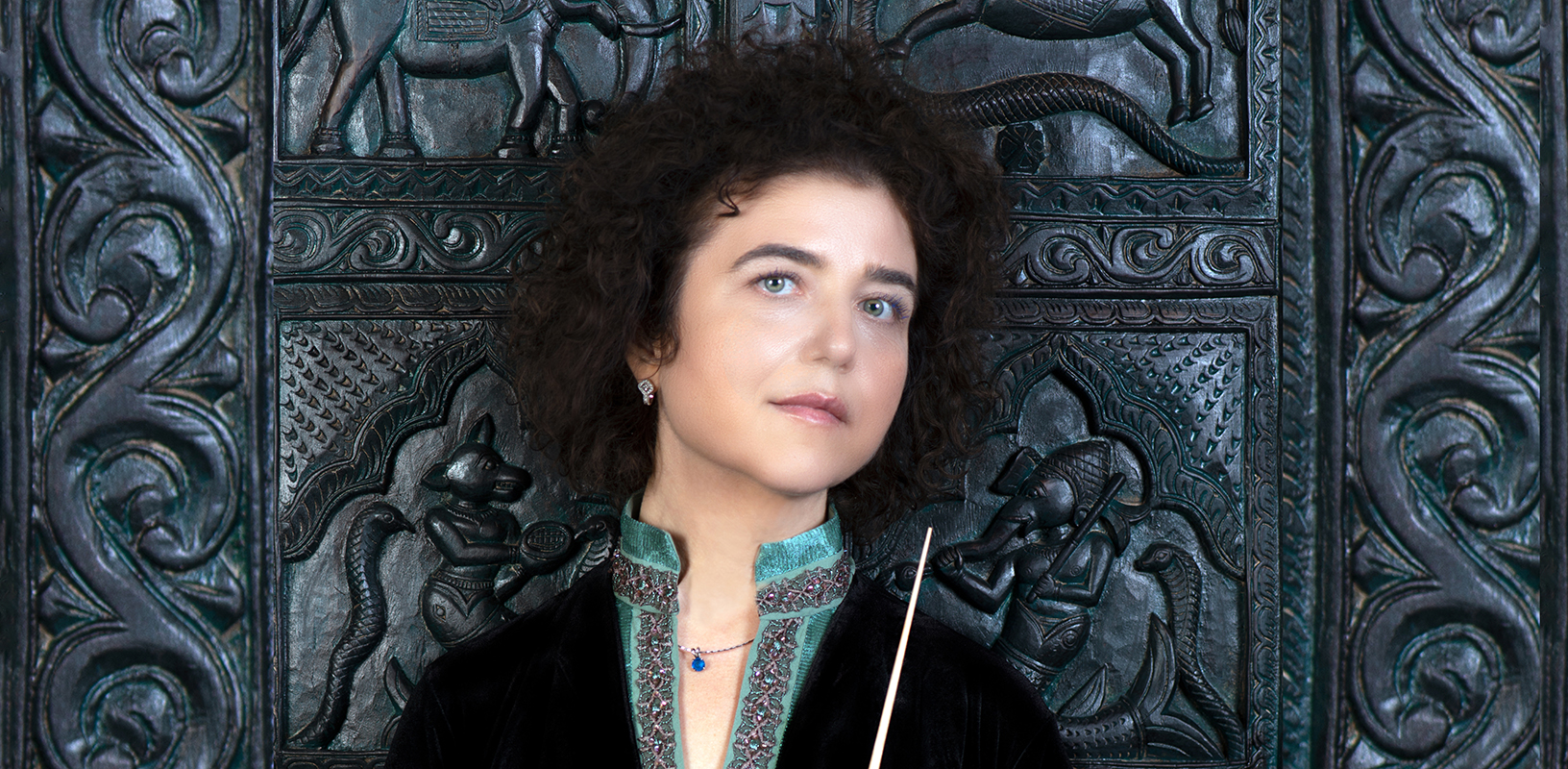Lera Auerbach’s Frozen Dreams: from Pittsburgh to Vienna

Following its premiere this month in Pittsburgh, Lera Auerbach’s new orchestral work Frozen Dreams receives its first European performances with the Vienna Symphony Orchestra and Manfred Honeck on 21 and 22 June.
Lera Auerbach’s new orchestral score, Frozen Dreams, receives first performances this month on both sides of the Atlantic under the baton of Manfred Honeck. The world premiere is given by the Pittsburgh Symphony Orchestra at Heinz Hall on 13 June, with further performances on 14 and 15 June. The European premiere performances of the 12-minute work are a week later with the Vienna Symphony Orchestra at the Musikverein on 21 and 21 June.
Auerbach describes Frozen Dreams as “a reflection on sound, memory, and the uncertainty of time.” The piece explores how our perception of music is constantly shifting, much like dreams or memories – both lasting and fleeting at once. This new orchestral work is an expansion of music from her String Quartet No. 10, also titled “Frozen Dreams”.
The composer explains how “music exists in a paradox: it is both frozen and ephemeral, tangible and elusive. The act of composition is an attempt to capture something that is already dissolving. My orchestral work Frozen Dreams emerges from this paradox, reimagining the sound world of my earlier 'Frozen Dreams' String Quartet and expanding it into an orchestral landscape that explores the fragility of perception and the shifting nature of reality itself. And what is a dream, if not a memory that will be? Dreams are the subconscious writing the past into the future, fragmenting time so that what has been and what has yet to come coexist in the present moment. Though the title Frozen Dreams suggests stasis, this work is, at its core, about movement – about the delicate tension between what is remembered and what is forgotten, between what is possible and what is inevitable. It is a meditation on the way time is layered in our minds: past, present, and future coexisting in an endless spiral."
Auerbach introduces musical ideas that drift in and out like distant echoes – sometimes familiar, sometimes unfamiliar – blurring the lines between what has happened and what is yet to come. “A theme emerges, vanishes, then returns changed – as if recalled from a dream, yet belonging to a moment still waiting to unfold”, says the composer.
> Visit the Pittsburgh Symphony Orchestra website
> Visit the Vienna Symphony Orchestra website
May brought the premiere of a further Auerbach orchestral score, On Grief and Wonder (Adam’s Lament), by the Bremen Philharmonic conducted by Valentin Uryupin. The new 12-minute work is a partner to the composer’s earlier score Eve’s Lament ‘O Flowers, That Never Will Grow’, which combines reflections on Milton’s Paradise Lost with commentary on environmental issues. Following its premiere under Marin Alsop in 2019, Eve’s Lament has become one of Auerbach’s most frequently performed pieces, alongside her Icarus.
Autumn highlights for Auerbach include the German premiere of her major choral work Flights of the Angakok performed by the MDR Radio Choir conducted by the composer in Leipzig on 7 November.
> Further information on Work: Frozen Dreams
Photo: Raniero Tazzi
